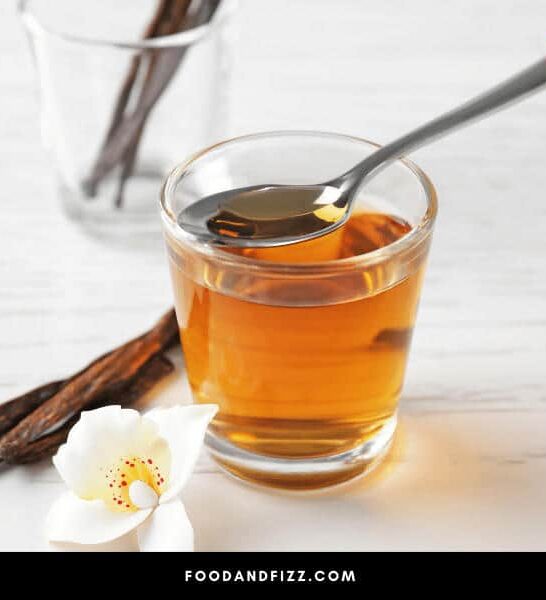What Happens If You Boil Vanilla Extract? I guess that the difference between a true scientist and a dilettante like me is that natural-born scientists are curious about everything, while I tend to be curious only about things that spark a heated debate, especially online arguments, where I practice my umbrage against opponents and hurl vile invective at them from behind a veil of anonymity. (Uh, have I said too much? Lol. Anyway, I jest.)
Seriously though, when I came across the question of what would happen if we boiled vanilla extract, my first reaction was, “Why on Earth would you want to boil vanilla extract?”
This is precisely why I’d never make a good scientist. Real scientists ask the darndest questions no one else thinks to ask, which is why they go to make astonishing discoveries.
I didn’t believe I’d make any shocking discovery by asking what happens when we boil vanilla extract, yet I was shocked to discover that naughty kids were getting drunk on the stuff on their way to school, the dimwits.
First, I was dumbfounded to find out that you can get drunk on the stuff, and second, I was struck by the stupidity of going to school drunk instead of going home drunk. But perhaps I’m missing the point.
What Happens If You Boil Vanilla Extract?
Boiling vanilla extract removes all its alcohol content, which is at least 35% by volume. As the remainder of the extract–a solution of a substance called vanillin and water–continues to boil, vanillin breaks down into its component organic molecules, and most of it boils off, finally leaving mainly water and a few random particles of organic remains.
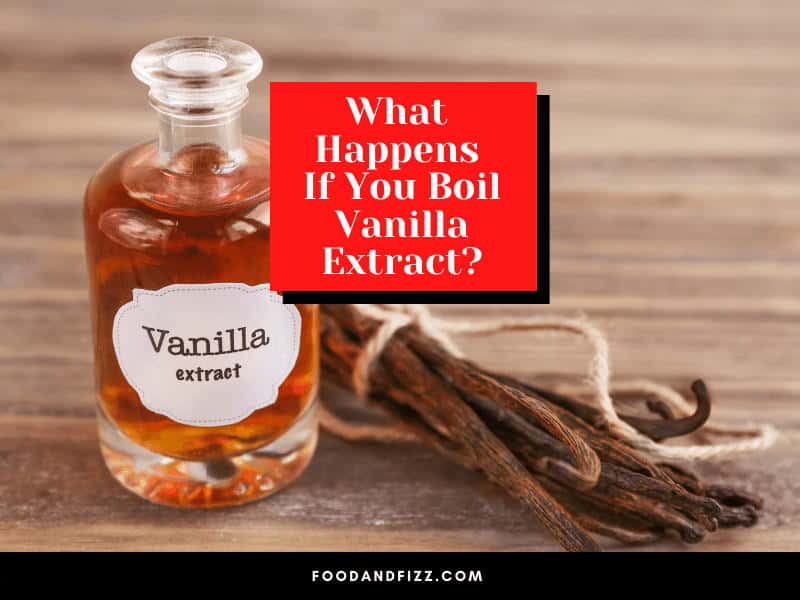
What is Vanilla Extract?
It seems that if we ask, “What happens if you boil vanilla extract?” the logical place to start is to ask, “What the heck is in vanilla extract?”
If the answer turns out to be highly flammable materials or compounds that evaporate quickly and combine with oxygen to form a highly incendiary mixture, then the answer would be a rather obvious and emphatic, “You blow yourself sky high.”
On the other hand, if vanilla extract is made from nothing but water and a few benign, chemically and physically inert compounds, then there’d be nothing to worry about. So, which is it? What’s in vanilla extract?

Vanilla and An Unexpected Discussion Involving Beaver Poop
Remember how I said science was all about asking questions and sometimes coming up with surprising answers? Well, welcome to science 101 then, and some news that I certainly hadn’t anticipated and found perfectly horrendous was that vanilla comes from beaver poo.
Fortunately, I was wrong.
Actually, castoreum, a significant component in some “vanillas”, does not, in fact, come from beaver poo. However, before you become too cheerful about it, castoreum does come from beaver, and it does come from its behind. Castoreum is the goop from beavers’ anal glands, queue shock, horror, and amazement. (😯)
As extracted from beavers, castoreum is a combination of goop from their castor glands (which is what we want, supposedly), goop from their anal glands, and their urine.
So all-in-all, although not beaver poop, still not quite the nectarous ambrosia that, going strictly by the wonderful way it smells, one might have thought and hoped for.
Vanilla Extract vs. Vanilla Essence
Vanilla Essence
Vanilla essence is essentially fake vanilla extract, extracted from many things such as cloves, pine bark, and the ass-end of a beaver.
Vanilla essence purveyors don’t call their products “fake”, of course, but use the fancier euphemism, “imitation”–that is, when they bother to remark upon the provenance of their vanilla, which, by the way, is something they are loathed to do.
People who claim to know these things estimate that an estimated 98% of all vanilla worldwide is vanilla essence, meaning that there is a small, next-to-zero chance that your favorite vanilla expressions, such as cakes, ice creams, biscuits, and chocolates, use genuine vanilla extract.
That also means there’s a great, close-to-certainty chance that you’ve been chowing down on beaver ass-gloop too, but since you enjoyed it, why kick up a fuss now?
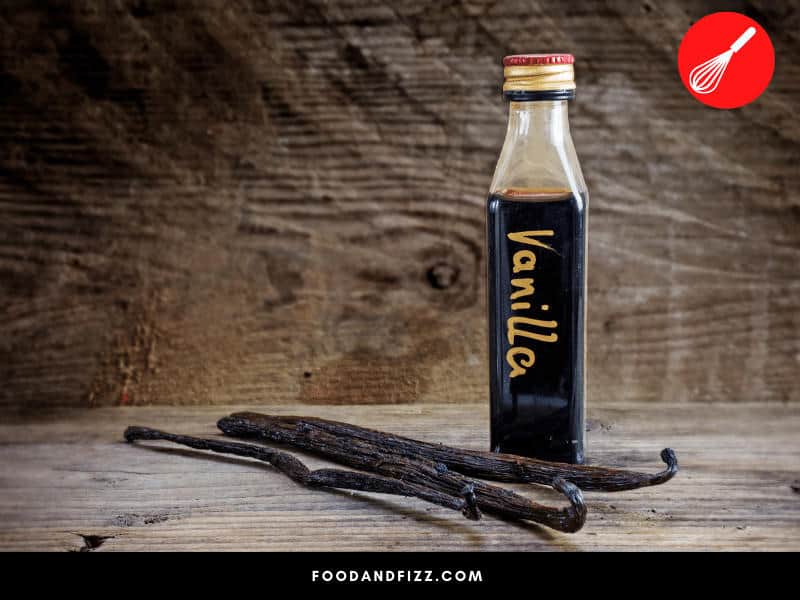
Vanilla Extract
Genuine vanilla extract is a material extracted from vanilla beans and is essentially an organic chemical compound called vanillin. Each vanilla bean can contain up to 5% vanillin, but we’re typically looking at just 3% or something in-between.
Cost-wise, genuine vanilla extracted from vanilla beans costs between $900 and $1,800 per pound. This somewhat eye-watering figure compares rather unfavorably to imitation vanilla from beaver goop, pine bark, cloves, and other organic materials, which comes at a more affordable $450/lb.
Organic, bioengineered vanilla itself is pricier than petrochemical-sourced “vanilla”, which slides in at an incredibly reasonable $7/lb, instantly explaining why this is probably the flavor of vanilla you are most familiar with.
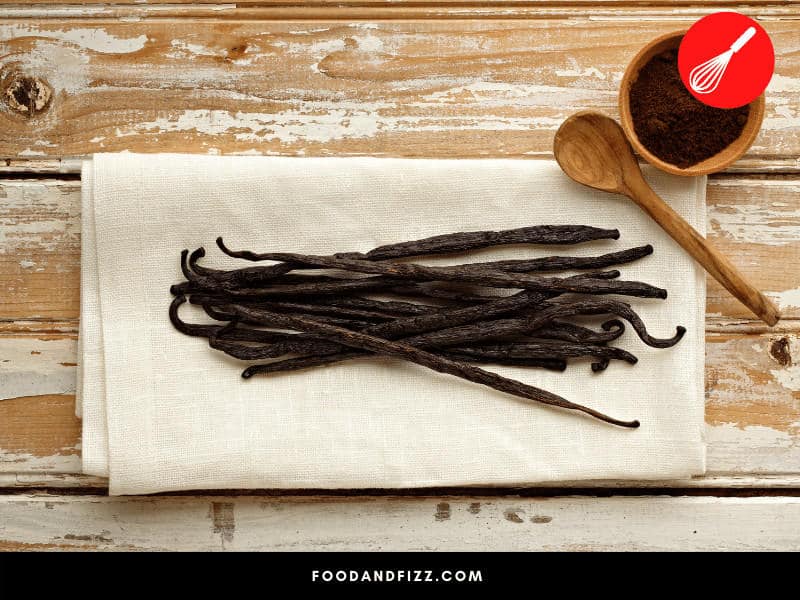
Kitchen Vanilla Extract
The US regulates what manufacturers can legally label “pure vanilla extract”. The rules are that such liquids contain 13.35 ounces of vanilla bean extract per gallon and 35% alcohol.
Since natural vanilla beans contain at most only 3% alcohol, it stands to reason that 100% pure vanilla beans are not legal “pure vanilla extract” in the US, a complex and nearly incomprehensible state of affairs that I find impossible to explain.
Making Vanilla Extract Boil
Given the ingredients in legally pure vanilla extract–vanillin, alcohol, and water–bringing it to a boil involves little more than heating the liquid past its boiling point.
Alcohol has a comparatively low boiling point of just 172°F compared to water, which boils at 212°F. This means all the alcohol will boil off before the water starts boiling.
In practice, boiling vanilla extract results in boiling off its alcohol and subjecting its vanillin–a compound made up of various delicate organic molecules–to the high temperature at which water boils.
At this temperature, the structure of vanillin collapses, and the constituent parts boil off.
So, the result is, the longer you boil pure vanilla extract, the weaker the solution becomes until you are left with nothing but a diluted solution of what used to be vanilla extract but now smells and tastes faintly of something only you can’t tell what.
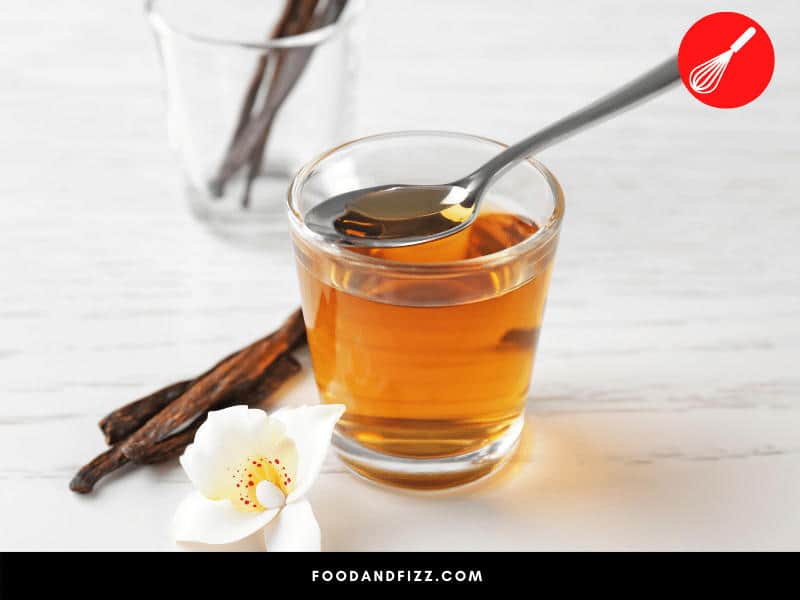
Frequently Asked Questions About What Happens If You Boil Vanilla Extract
Since the Main Component of Natural Vanilla is Beaver Anal Secretions, How Come It Smells Nice?
Nature has arranged things so that we don’t try to ingest our anal secretions (let’s face it, this is a fancy way of saying “poop”.) We stay away from poop because it smells horrific and, in all likelihood, tastes pretty darned terrible too. That way, we are not tempted to practice autocoprophagy, which means we don’t accidentally poison ourselves with the dangerous bugs in our anal canal.
Since Boiling Vanilla Extract Boils Off Its Alcohol, Does That Mean That Food Made With Vanilla Extract is Alcohol-free?
Boiling out all the alcohol in vanilla is not as simple as many folks make out. It actually takes a bit of effort to achieve this. For example, to eliminate every trace of alcohol in a liquid to which you have added vanilla extract, you would have to keep the liquid on the boil for over three hours to be confident!
Since Boiling Vanilla Extract Reduces Its Alcohol, Is It Still Possible to Get Drunk on Food Cooked with Vanilla?
To the best of my knowledge, no one should be able to get drunk on food cooked with vanilla extract, allowing for everyday usage and typical circumstances. However, do not take this response as a certainty; you must apply your own critical thinking and common sense before ingesting any food. If in doubt, stay away from the meal.

